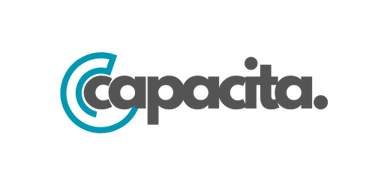AI Is Here: 5 Hacks To Beat AI Agents & Stay Employed
Capacita Consultants
3/13/20252 min read
The rise of Artificial Intelligence (AI) has sparked global anxiety about job displacement, and the Philippines is no exception. According to the World Economic Forum’s Future of Jobs Report 2023, 23% of global jobs are expected to be disrupted by AI and automation by 2027. In the Philippines, where 56.4% of workers are employed in high-risk sectors like agriculture, retail, and manufacturing (Philippine Statistics Authority, 2021), the urgency to adapt is clear. However, the Filipino workforce can still turn this challenge into an opportunity. Here's how:
By Embracing Upskilling & Re-Skilling
The key to resilience lies in acquiring new skills. TESDA reported training 1.2 million Filipinos in 2022, focusing on tech-driven fields like programming and robotics. A recent LinkedIn report also reveals a 40% surge in demand for AI and data analytics roles in the Philippines since 2021, signaling where opportunities lie. Workers in vulnerable industries should prioritize certifications in digital literacy, AI management, and cloud computing to stay competitive.
By Leveraging On Digital Literacy Programs
The Department of Information and Communications Technology (DICT) is set to roll out its Digital Cities initiative this year (2025), aiming to train 100,000 Filipinos in AI, cybersecurity, and other tech fields. Free online platforms like Coursera and Google’s Digital Garage further democratize access to skills development, enabling workers to learn at their own pace.
By Strengthening Your “Uniquely Human” Skills
AI cannot replicate empathy, creativity, or cultural nuance—skills where Filipino workers excel. The BPO sector, for example, which employs roughly 1.3 million Filipinos, is pivoting toward higher-value roles like data analysis and AI supervision. By combining technical know-how with soft skills, workers can eventually transition into roles that require human-AI collaboration.
Exploring Entrepreneurship & Innovation
According to the Department of Trade and Industry (DTI), The Philippine startup ecosystem grew by 17% in 2022, with tech startups leading the charge. Government grants and incubators, such as IdeaSpace and QBO Innovation Hub, empower workers to launch AI-driven ventures, from agritech solutions to e-commerce platforms.
Being an Advocate for Ethical AI Policies!
The Philippine Development Plan 2023–2028 emphasizes integrating AI into national strategies while ensuring worker protection. Collaboration between lawmakers, businesses, and labor groups is critical to creating safety nets, such as unemployment benefits tied to AI displacement and regulations promoting fair AI use.
The AI era need not be a zero-sum game. Through embracing lifelong learning, leveraging government programs, and advocating for inclusive policies, Filipino workers can still exist alongside technology. The goal is not to outrace machines, but to harness their potential to build a more skilled, equitable workforce.
Remember, the future belongs to those who adapt!
(Sources: World Economic Forum (2023), PSA (2021), TESDA (2022), LinkedIn (2023), DICT (2023), DTI (2022), Philippine Development Plan (2023).)
Connect With Us


